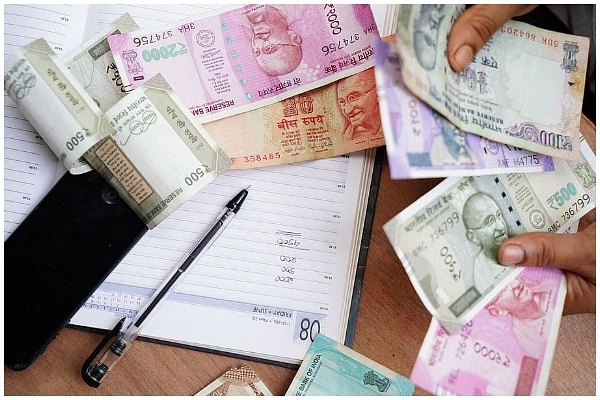Business
Bankers Are Not Bad Guys To Lend To Businesses, Some Of Which Eventually Fail
- What is needed is to strengthen our regulatory systems and prosecute those who enable banking frauds.

Currency notes
The Yes Bank crisis has resulted in several politicians, journalists and civil society members demanding stringent action against those responsible. It has thus created a sentiment against bankers, and many disapprove of the use of public funds to ‘bail out’ those whose sole business is to make money.
Let us make two things clear before we delve any further. Firstly, the cost of regulatory intervention in any such instance is much lower than the loss that we may incur if we fail to act.
Consequently, a bailout is often the only solution available to central banks in such situations.
Secondly, in the case of Yes Bank, all depositors must rest assured regarding the safety of their deposits. The Reserve Bank of India (RBI) is indeed working swiftly on the successful revival of Yes Bank and, the draft resolution plan seems promising.
The fact that it was ready within a day of Yes Bank being put under moratorium is an assuring sign that reflects the urgency and priority that the current regulators and government place on finding a solution.
However, the purpose of this article is to address the popular narrative of going after the bankers as we explain why it is more damaging than constructive.
It is essential to acknowledge that indeed, in most cases, bankers have lent out to sectors and companies after doing due diligence.
Conversely, a reasonable number of cases have also surfaced where loans were sanctioned due to political intervention for nonviable projects between 2009-13, making it necessary for regulators to identify all those who made it possible for a systemic breakdown of our credit machinery.
Therefore, it is clear that what is needed is to identify instances of genuine business failures and separate them from cases of bank frauds.
Penalising bankers for cases of increasing NPAs on their books due to genuine business failures in the same manner as in the instances of bank frauds is nothing more than drawing a false equivalence.
It would be unfair to assume that lenders would deliberately lend out money knowing well that the project would fail without any incentives.
Furthermore, the viability of a project can be known once the loan has been advanced and not before. Therefore, it is critical to understand the moral hazard bankers deal with due to information asymmetry while making lending decisions and, to acknowledge that bankers carry out unbiased risk assessments.
Going after bankers in events of a loan default resulting from a project failure, due to various factors, impacts their decision-making process. The slow credit offtake in recent times is a direct outcome of the risk-aversion nature of our bankers.
An unintended consequence of the popular demand for the arrest of bankers due to an increase in NPAs could result in a systemic freeze of credit, and we’re already witnessing a part of it at play in our banking system.
To further go after promoters for failed projects is again not in the spirit of creating a vibrant and dynamic economy, that celebrates its wealth creators.
Although the entire narrative of industrialists being bad and bankers colluding with them to create a crony-capitalism may be partly true, such a narrative has, at its core, an implication for the entire economy.
Not all industrialists or bankers are bad. Many of them have created valuable enterprises that employ thousands of Indians. Going after all of them would be to go after the India Growth Story that has had its hits and misses. Nevertheless, it is an impressive story.
Let us recognise the need to strengthen our regulatory systems along with the need to prosecute those that collude and enable banking frauds.
At the same time, let us also appreciate the important role played by Indian bankers and industrialists in building such a vibrant economy.
Support Swarajya's 50 Ground Reports Project & Sponsor A Story
Every general election Swarajya does a 50 ground reports project.
Aimed only at serious readers and those who appreciate the nuances of political undercurrents, the project provides a sense of India's electoral landscape. As you know, these reports are produced after considerable investment of travel, time and effort on the ground.
This time too we've kicked off the project in style and have covered over 30 constituencies already. If you're someone who appreciates such work and have enjoyed our coverage please consider sponsoring a ground report for just Rs 2999 to Rs 19,999 - it goes a long way in helping us produce more quality reportage.
You can also back this project by becoming a subscriber for as little as Rs 999 - so do click on this links and choose a plan that suits you and back us.
Click below to contribute.
Latest